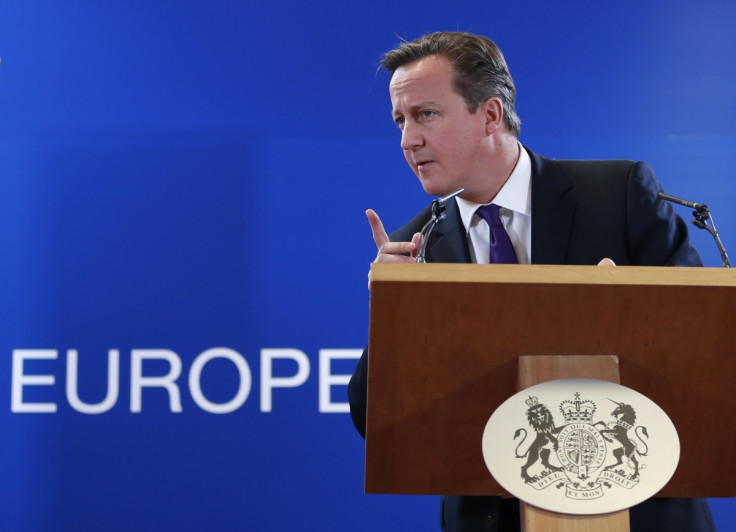EU referendum: £30m child benefit roadblock is halting David Cameron's renegotiation deal

David Cameron's EU deal is under threat by Eastern European nations' reluctance to accept a welfare crackdown that could save the UK government around £30m ($42m) a year.
The leaders of the Visegrád Group (made up of Czech Republic, Hungary, Poland and Slovakia) are reportedly opposing the British prime minister's proposal to stop UK child benefit payments from being handed out across the continent.
The social security provision can be payable to European Economic Area (EEA) workers in the UK despite their children being resident in another EU member state. Cameron wants Britain to have an opt-out from the regulation, with the move potentially saving millions for the Treasury.
There were 19,579 families with child benefit claims awarded in respect of 32,408 children living in other member states as of March 2015, according to the House of Commons library. The Department for Work and Pensions provides £20.70 per week for the eldest or only child and £13.70 over the same period for any extra children.
The structure means the claims from EU families working in the UK, with children residing in another member state, amount to around £30m a year. That figure does not include the amount of child tax credit money given to EU migrants with a similar family set-up.
The House of Commons said there were 7,026 ongoing child tax credit awards granted in respect of 11,762 children as of March 2015. Families can receive up to £545 a year for a basic amount of child tax credit – known as the 'family element' – and could be entitled to more money, including a 'child element' of £2,780 per year.
The development comes after the Visegrád Group's resistance to Cameron's other benefits plan, which now includes a so called 'emergency migration break'. The mechanism would allow the UK apply to Brussels in a bid to stop EU migrants in Britain from accessing in-work-benefits for up to four years.
The proposal is designed to reduce net migration to the UK after the prime minister promised to cut numbers to "tens of thousands". But a pre-general election briefing from the University of Oxford's Migration Observatory warned there was "no direct evidence" on whether welfare payments had acted as a "magnet" drawing migrants to the UK.
A source close to the Treasury told IBTimes UK that it would not be possible to speculate about what the implementation of the prime minister's benefits proposals would be while his renegotiation continues with Brussels. Cameron is apparently hoping to come away with a finalised settlement soon and hold the referendum on 23 June.
The latest opinion poll from Ipsos MORI, of almost 500 people between 13 and 16 February, gave 'remain' an 18 point lead over 'leave' (54% versus 36%, respectively).
Elsewhere, figures released from the Office for National Statistics on 17 February showed that the number EU nationals working in the UK has increased by 215,000 to more than two million in the year to December 2015.
© Copyright IBTimes 2025. All rights reserved.





















